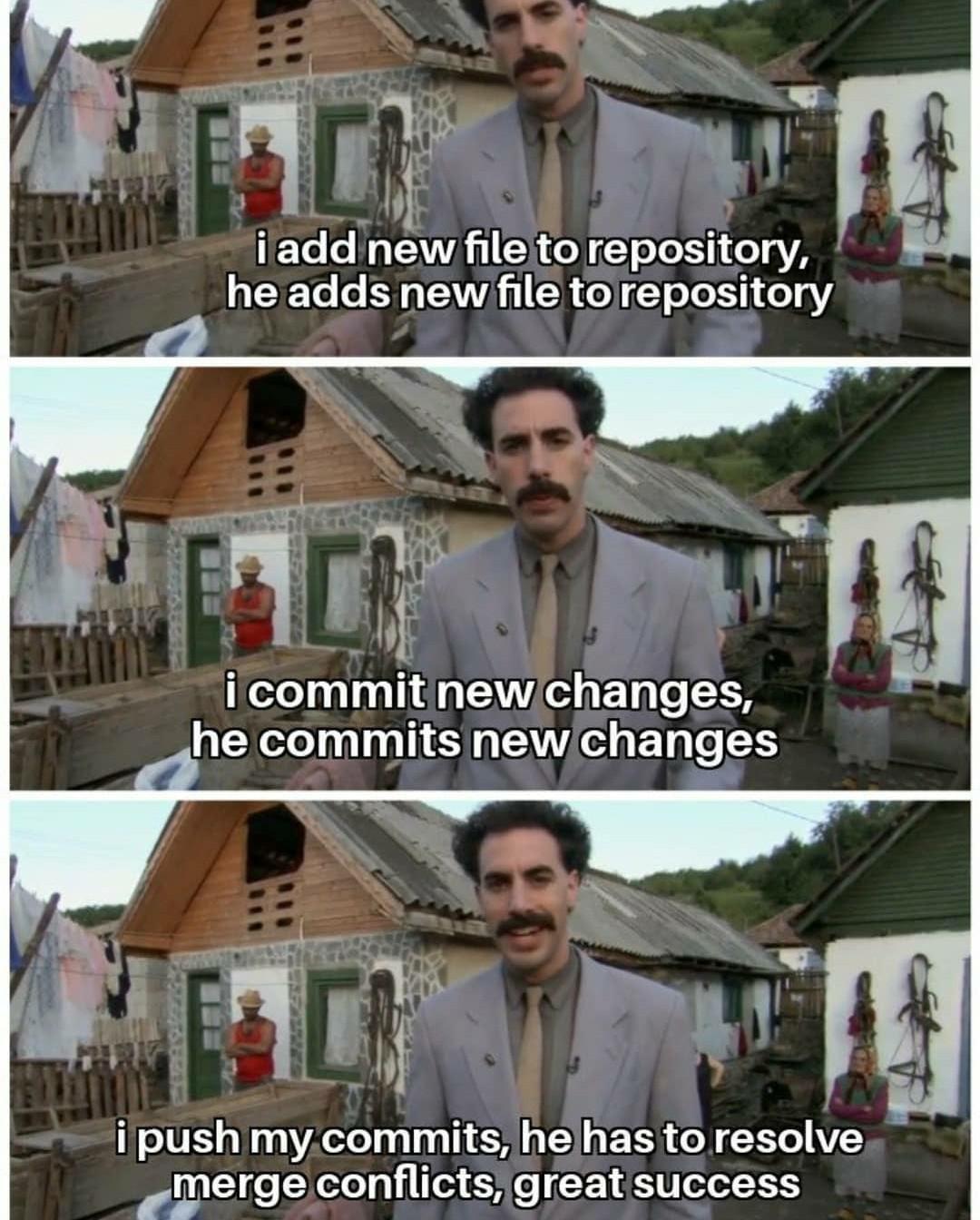this post was submitted on 26 Aug 2023
1182 points (98.4% liked)
Programmer Humor
33529 readers
279 users here now
Post funny things about programming here! (Or just rant about your favourite programming language.)
Rules:
- Posts must be relevant to programming, programmers, or computer science.
- No NSFW content.
- Jokes must be in good taste. No hate speech, bigotry, etc.
founded 5 years ago
MODERATORS
you are viewing a single comment's thread
view the rest of the comments
view the rest of the comments

Yep, in part, I do. Say I'm working on
featurewhich branched off frommain. Time's gone by, and there have been commits on bothfeatureandmain. I want to integrate (not I am very carefully not using the wordmerge!) the commits that exist onmaininto myfeaturebranch so that I can use them. You can make a merge commit to do so, but there's no point in doing so - agit pull --rebasewill have the same effect ("My local branch contains both the changes from the upstream, then the changes that I myself have made 'on top of' them") without requiring a merge commit.But really, what one chooses to do in the privacy of one's own branch is no concern of mine. I can advise and opine, but it doesn't really affect me. What does affect me is when people insist on merging into
main. That really irritates me, because it results in horrible tangled non-linear history like this. Ideally, the history ofmainshould be a linear history of changes which each follow on from one another, and a commit and a change are in 1:1 correspondance:main. They are maybe useful in the PR, but the change as seen inmainshould only contain the finished polished-up result.GitHub's confusingly named "Squash And Merge" (it's a "merge" in the
git mergesense, but it doesn't create a Merge Commit! "Squash and commit" or "Squash and push" would be more accurate) results, I think, in the outcome - a single commit on theHEADof the target branch containing the result of the change. And if that happens, then I don't care if you've been pulling in changes frommaintofeaturevia Merge commits or (correctly IMO) viagit pull --rebase- because, whatever you've done, your development history will be (correctly) invisible from the commit onmain.(I say "I think" there because I've only recently started using GitHub in a professional capacity. For the decade prior to this I worked at a Big Tech company which had its own in-house Code Review tools which - probably not by coincidence - aligned a lot more closely with how I think about how Git history should be structured)